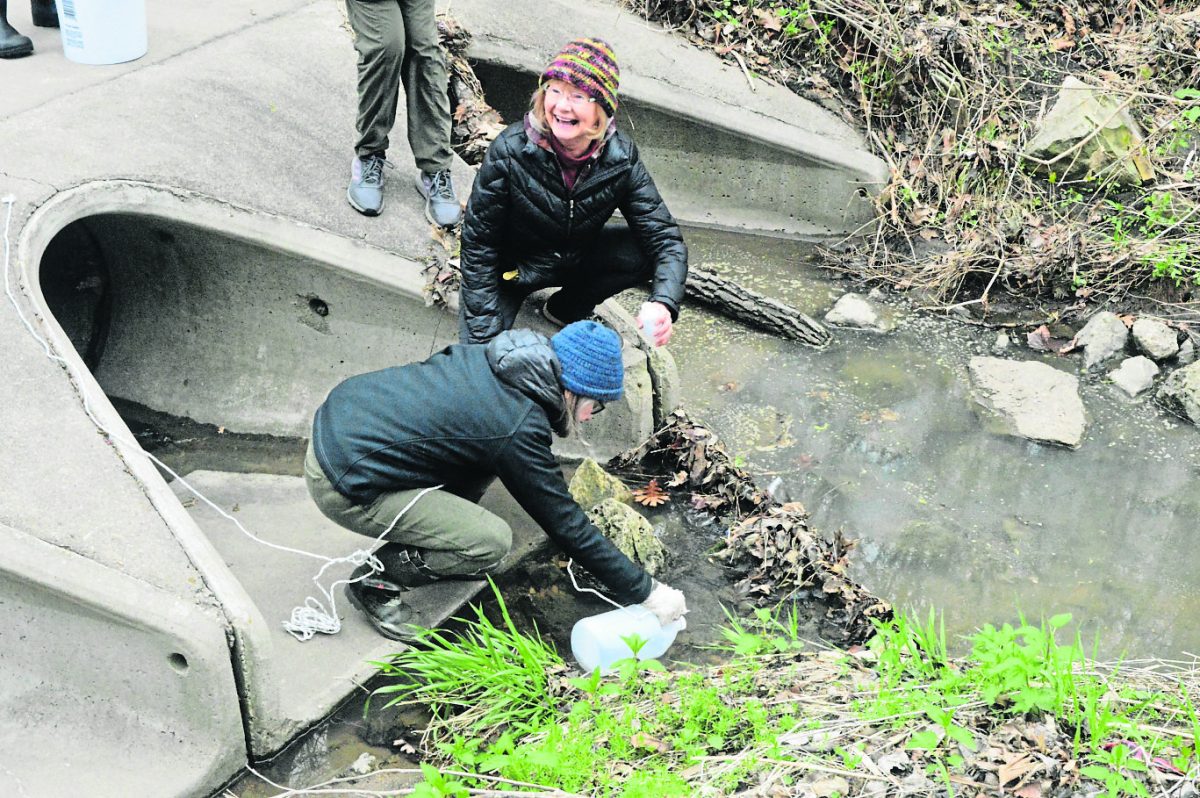Mount Vernon’s chapter of Women for Water will be testing Hahn Creek throughout the rest of this year.
The group held a training session Saturday, April 22, in Mount Vernon as part of Earth Day activities.
Marty St. Clair, instructor from Coe College, walked the 15 in attendance through the different tests that would be required to be conducted once a month moving forward. The water quality tests will be conducted the third Saturday of every month.
Tests will need to take a water sample that St. Clair will run additional tests on from each location along the creek.
Hahn Creek was named in 2013. It’s a creek that flows from Mount Vernon into the Spring Creek, which then empties into the lower Cedar River.
Linn County Conservation Board helped pay for the testing supplies to be used.
St. Clair recommended that members take their water quality checks from the area around bridges that run over the creek so they aren’t on someone’s private property conducting the tests.
“You want the water to be coming at you, and should be taking water from the deepest parts of the creek,” St. Clair said.
The first test that would be conducted would be the oxygenation of water.
St. Clair said that oxygenation levels would be higher in colder water, and less in warmer waters.
The other test would be pH balance of the water.
They would also be testing the nitrate levels of the water. He said that 2 to 3 milligrams per liter is a usual reading in this portion, and 10 milligrams per liter is the highest drinkable level in public water supplies.
The final test would be the level of chloride in the water supply. That is usually higher during the winter, due to the run off salt on roadways into those water supplies.
Observers are also to take notes on the water level at the creek, descriptions of the quality of the creek (is the water clear, murky, stagnant, what were recent weather conditions?)
One of the other things field studies should note – Are there bugs or inverterbrates near the water supply.
“Certain bugs will tell us what the condition of the water is,” St. Clair said. “Things like dragonflies would be healthy, while insects like leeches would show up in more unhealthy water.”
Those reports and the water samples after the tests can be dropped off at St. Clair’s home.
After the presentation walking through how to conduct the tests, all volunteers had a chance to go do their first field study at the gazebo at Hahn Creek to the east of First Street Community Center. Attendees walked through the number of samples of water needed from the creek for each of the tests.
“Science is fun,” said Marsha Accord, as the experiments went on.
Marie Devries indicates one of the five testing spots for Hahn Creek that will be conducted over the next seven months.


